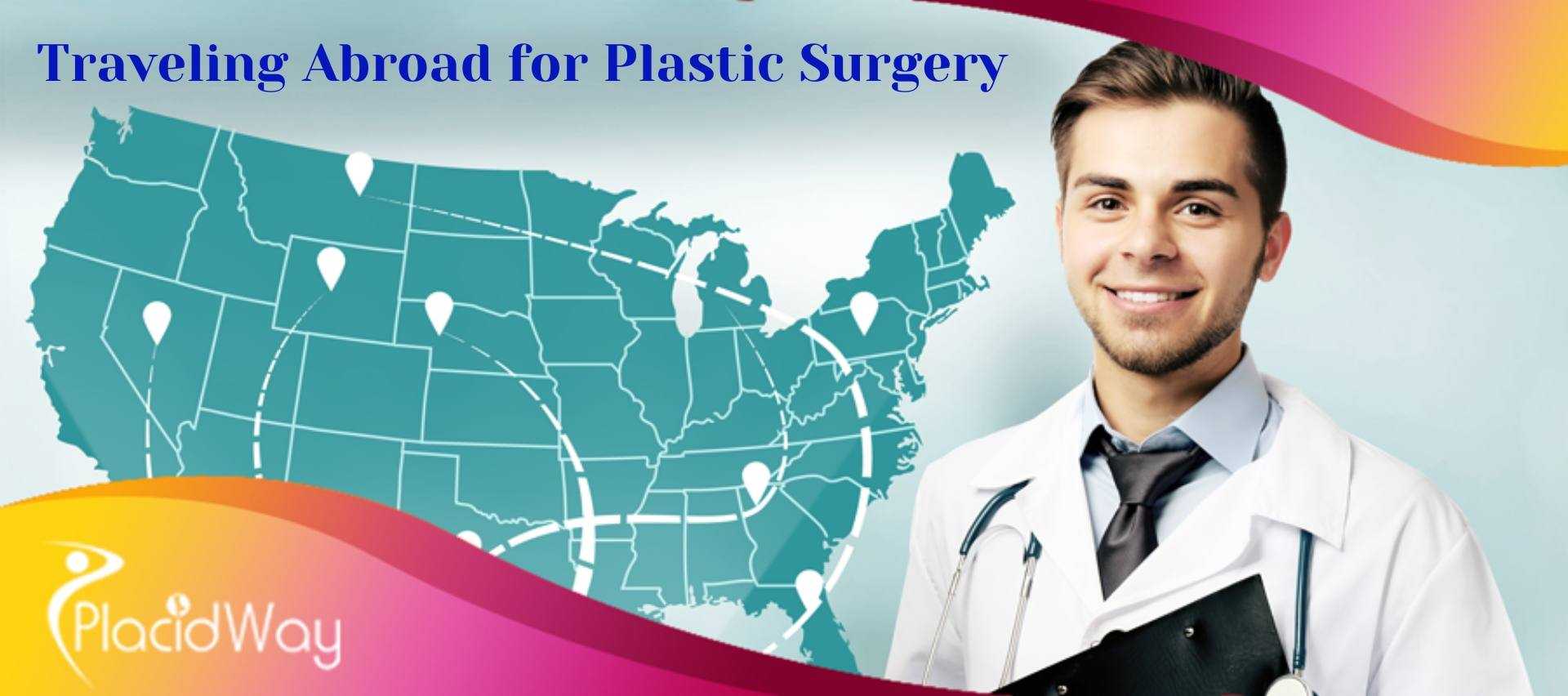6 Key Things that You Must Do Before Traveling Abroad for Plastic Surgery
37-year-old Lindsay from Alaska has been looking forward to get a tummy tuck and breast augmentation for about the past three years. She considered getting cosmetic surgery abroad as the price is much cheaper than in the United States. However, she has not been able to decide because finding a qualified plastic surgeon with a proven record of safety is never easy. Just like Lindsay, millions of people are facing similar challenges.
Getting a clear picture of a surgeon's qualifications or finding a good clinic with a proven success record is difficult. On top of that legal loopholes and loose regulations make things more confusing for consumers. If it is complicated to navigate medical aesthetic options in your own country, imagine what challenges you might face when you travel abroad for plastic surgery. From loose government regulations to language barriers, numerous factors can put you in danger. Therefore, you must know the right steps to mitigate it as a consumer. Here are six actions that you must take if you consider plastic surgery abroad.
1. Is your Surgeon Board-Certified?
Take a deep dive into the resume of your surgeon to be sure he/she is board certified. The process of board certification is rigorous and it demonstrates the doctor went through intensive training and education within a specialty that you are looking for. The provider just having standard medical licensing is not enough to prove the surgeon's skill.
However, there are no universal standardized curricula set for becoming an experienced and safe cosmetic surgeon. Thus, it is important to opt only for a board-certified surgeon. Not all countries have their own established medical boards for plastic surgery. On top of that, the training programs and education of plastic surgery is hugely different. Thus, traveling to the countries for plastic surgery without their certification boards can be very risky, as it is nearly impossible to measure the level of experience of the provider.
You can make your research even stronger if you check the surgeon you are interested in is associated with the International Society of Aesthetic Plastic Surgery (ISAPS). ISAPS’s mission is to inform the public, promote patient safety and educate its members in the latest surgical techniques. To become its member, having a board certification or equivalent training is compulsory for a surgeon. Moreover, the surgeon must be actively practicing for at least three years and have a proven safety record.
2. Credentials of the Clinic
No matter if your chosen surgeon is highly skilled or the best doctor in your preferred medical specialty, he/she is useless without the proper assistance and tools. So, you must ask the surgeon which organization has accredited the cosmetic surgery clinic and when the last inspection has taken place. However, you should not just rely on the information provided by the surgeon. You must verify the information independently by looking from where the clinic received its accreditation. Some of the top medical certification providers include:
- JCI or Joint Commission International
- International Society of Quality in Healthcare (ISQH)
- American Association for Accreditation for Ambulatory Surgery Facilities International (AAAASFI)
- National Accreditation Board for Hospitals & Healthcare Providers (NABH)
- Accreditation Council for Continuing Medical Education (ACCME)
- Accreditation Council for Graduate Medical Education (ACGME), etc.
Apart from the clinic’s credentials, you should also enquire about the anesthesiologist’s credentials and know if they will be present during the entire course of the procedure. You should also learn if the surgeon has the privileges of the hospital. In the worst-case scenario, you might be taken to another hospital. You must know where is that hospital and what distance needs to be traveled to reach there. What you need to do is get every possible detail about the facility before you say yes.
3. Language Barrier- a Big No
It would be really great if you work with the doctor and hospital that speak your native language. However, that might not be always possible when you travel abroad for medical treatment. Simple miscommunications may give rise to risk issues and your health is too important to take such chances. If your surgeon does not speak your native language, you should get an agent or a translator for attending all appointments along with you. Make sure the agent/translator has a background in medicine so that he/she understands the medical terms and get correct answers to your queries thoroughly.
The language barrier can also cause hindrance to other important aspects related to your treatment. So, you must get all the details related to your surgery and/or payment details in writing. Know the complete cost breakdown, the protocol of the treatment along with the materials that will be used in the procedure (e.g. brand of the implant) and appointments. You may need assistance during odd hours. In such a case, ask whom should you call, email or message.

4. Get Medical Clearance
If you have not been given medical clearance, no reputable plastic surgeon will operate on you. You may come across some providers who don’t ask for medical clearance record. It is better to avoid such providers. Make an appointment with a general physician in your home country at least a month before your scheduled procedure abroad. Get all the necessary tests and physical examinations, immunization history, x-rays and all the required paperwork ready. Do not forget to bring the copies abroad as proof of your medical clearance for the chosen procedure.
5. What will be the Medications?
While you consult with the cosmetic surgeon abroad over video consultation or phone, know the medicines that you need to take before and after the procedure. Ask your surgeon about the medicines you might be prescribed including generic names, dosages, etc. Also, inform the surgeon about the medication that you are presently on (if any) so that he/she can figure out the possible drug interactions and dosages. This will help you to arrive at your destination prepared with proper knowledge of your medicines.
6. Recovery Time
Ask your doctor about the recovery time you need before you board on your return flight. Flying back after a procedure might increase certain risks like infection, blood clots, pulmonary embolism, etc. You should build enough recovery time as per the plastic surgeon's recommendation for your procedure. According to the American Society of Plastic Surgeons, a patient who went through Brazilian butt lift, breast augmentation, liposuction or any body-aesthetic procedure, must wait for 5-7 days before taking a flight back. In case of facial procedures such as eyelift, rhinoplasty or facelift, the recovery time before boarding a flight should be 7-10 days.
Considering the above six aspects will help you in a big way to increase your chances of a successful and satisfactory plastic surgery procedure abroad. It is very important to gather proper information and education that a patient must know before considering a medical treatment procedure abroad.
At PlacidWay, we have huge resources of educational content for patients so that they can make an informed decision. Check out details like how to search for the best plastic surgery clinics, surgeons, packages and more. Compare the doctor and clinic credentials or check before and after pictures to decide on the best facility to get your procedure is a safe and affordable way. PlacidWay is always with you to help to make a better, informed and realistic decision.
For any further assistance on a safe plastic surgery abroad, click the button below:


.png)






Share this listing